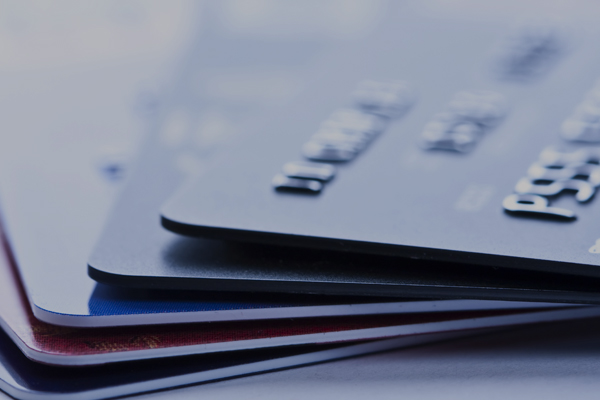


Debt Consolidation
Debt consolidation loans allow consumers to transfer the account balances from multiple credit cards or installment loans into a single loan and to make a single monthly payment. For debt consolidation loans to be beneficial, the repayment period for paying off the consolidation loan should be shorter than what it would be for your existing debts without the loan. Secondly, the interest that you pay over the repayment period should be less than what you would pay with your existing repayment terms. In some cases, a debt consolidation loan may look attractive because it has a significantly lower monthly payment than what you are paying today, but it is likely the case that the lower payment is due to extending the repayment of the loan over a much longer repayment period.
Debt Consolidation
Debt consolidation loans allow consumers to transfer the account balances from multiple credit cards or installment loans into a single loan and to make a single monthly payment. For debt consolidation loans to be beneficial, the repayment period for paying off the consolidation loan should be shorter than what it would be for your existing debts without the loan. Secondly, the interest that you pay over the repayment period should be less than what you would pay with your existing repayment terms. In some cases, a debt consolidation loan may look attractive because it has a significantly lower monthly payment than what you are paying today, but it is likely the case that the lower payment is due to extending the repayment of the loan over a much longer repayment period.
Make Bi-Weekly Payments
One popular strategy for accelerating the payoff of a loan is to make 'bi-weekly' payments. Under the bi-weekly plan, you will make payments to your lender every two weeks instead of monthly of half of your monthly payment. One important thing to note here is that this method will result in you making 26 payments each year, which is two more than you would make if you made a payment on the 1st day of the month and middle of the month, so you will have to budget accordingly. By making bi-weekly payments, you will comparatively make an extra monthly payment each year which will reduce your amount owed. By making payments every other week, you will also save a bit on interest charges for the outstanding loan balance that would normally still be there until the end of the month.
Make Bi-Weekly Payments
One popular strategy for accelerating the payoff of a loan is to make 'bi-weekly' payments. Under the bi-weekly plan, you will make payments to your lender every two weeks instead of monthly of half of your monthly payment. One important thing to note here is that this method will result in you making 26 payments each year, which is two more than you would make if you made a payment on the 1st day of the month and middle of the month, so you will have to budget accordingly. By making bi-weekly payments, you will comparatively make an extra monthly payment each year which will reduce your amount owed. By making payments every other week, you will also save a bit on interest charges for the outstanding loan balance that would normally still be there until the end of the month.
Meet a Debt Payoff Goal
Setting a goal for paying off a mortgage, auto loan, credit card or personal loan makes sound financial sense. Some loans, such as a mortgage or car loan have defined repayment periods. Others do not. To reach a debt repayment goal, you will need to know what you need to pay each month. You also might want to compare it to your current repayment schedule to see how helpful reaching that goal might be.
Meet a Debt Payoff Goal
Setting a goal for paying off a mortgage, auto loan, credit card or personal loan makes sound financial sense. Some loans, such as a mortgage or car loan have defined repayment periods. Others do not. To reach a debt repayment goal, you will need to know what you need to pay each month. You also might want to compare it to your current repayment schedule to see how helpful reaching that goal might be.
How Long Will it Take to Pay Off a Credit Card?
Like many credit card holders, there are times when you might have overdone it on the spending and are now facing the task of paying off your credit card balance. The length of time it will take is primarily driven by the interest rate you are paying on the outstanding balance, how much you continue to use the card and how much you pay off monthly. A good rule of thumb is to try to pay off any card balance in 36 months, but you might want to see what it will take to pay off the balance in shorter or longer increments of time.
How Long Will it Take to Pay Off a Credit Card?
Like many credit card holders, there are times when you might have overdone it on the spending and are now facing the task of paying off your credit card balance. The length of time it will take is primarily driven by the interest rate you are paying on the outstanding balance, how much you continue to use the card and how much you pay off monthly. A good rule of thumb is to try to pay off any card balance in 36 months, but you might want to see what it will take to pay off the balance in shorter or longer increments of time.
Use a Lump Sum to Pay Down Debt
If you have received a lump-sum payment from an inheritance, tax refund or commission off of a large sale, you might be wondering what the best use of that money is. One thing you should consider is paying off debt, whether it be a mortgage, auto loan or credit card debt. When you pay off debt, you are receiving a guaranteed return on your money -- the amount of interest you would otherwise be paying on any outstanding balance. Depending on the type of the loan, and especially for credit cards, that return might be greater than anything you could receive by investing the money. In addition to saving interest payment, you will also repay the loan sooner, freeing up extra cash at the end.
Use a Lump Sum to Pay Down Debt
If you have received a lump-sum payment from an inheritance, tax refund or commission off of a large sale, you might be wondering what the best use of that money is. One thing you should consider is paying off debt, whether it be a mortgage, auto loan or credit card debt. When you pay off debt, you are receiving a guaranteed return on your money -- the amount of interest you would otherwise be paying on any outstanding balance. Depending on the type of the loan, and especially for credit cards, that return might be greater than anything you could receive by investing the money. In addition to saving interest payment, you will also repay the loan sooner, freeing up extra cash at the end.
Are Credit Card Balance Transfers Worth It?
At some point in time, you are likely to receive an offer in the mail. Transfer an existing credit card balance to a new card and receive a promotional interest rate for a set number of months. Are these offers worth it? It depends on the promotional interest rate, the length of the promotional period, what the standard interest rate is once the promotional period expires and what the fee is to transfer your balance from one card to another. During the promotional period, you might be paying a lower rate, or 0% depending on the offer. Are the interest savings greater than the balance transfer fee? Whether they are a good deal or not also depends on how long it takes you to pay off the card balance once you move it to a new card.
Are Credit Card Balance Transfers Worth It?
At some point in time, you are likely to receive an offer in the mail. Transfer an existing credit card balance to a new card and receive a promotional interest rate for a set number of months. Are these offers worth it? It depends on the promotional interest rate, the length of the promotional period, what the standard interest rate is once the promotional period expires and what the fee is to transfer your balance from one card to another. During the promotional period, you might be paying a lower rate, or 0% depending on the offer. Are the interest savings greater than the balance transfer fee? Whether they are a good deal or not also depends on how long it takes you to pay off the card balance once you move it to a new card.
Increase Your Monthly Payment
If you're trying to pay down some debt, you might be wondering what the impact would be if you simply increased your monthly payment each month by just a little, or even a lot. When you increase your monthly payment, the amount of the increase gets applied directly to reducing the amount owed, or principle. Reducing the amount of money you owe will reduce your interest charges each month, as the interest rate will be applied only to the outstanding loan balance. An increase in your monthly payment will lessen the amount of interest charges you will pay over the repayment period and shorten the number of months it will take to pay off the loan.
Increase Your Monthly Payment
If you're trying to pay down some debt, you might be wondering what the impact would be if you simply increased your monthly payment each month by just a little, or even a lot. When you increase your monthly payment, the amount of the increase gets applied directly to reducing the amount owed, or principle. Reducing the amount of money you owe will reduce your interest charges each month, as the interest rate will be applied only to the outstanding loan balance. An increase in your monthly payment will lessen the amount of interest charges you will pay over the repayment period and shorten the number of months it will take to pay off the loan.
Calculate a Loan Payment
Repayment of a loan requires that the borrower make a monthly payment to the lender. With each monthly payment, you pay down a portion of the loan principal, as well as monthly interest on the outstanding balance. Loan payments are amortized so that the monthly payment remains the same throughout the repayment period, but during that time, the percentage of the amount that goes towards principal will increase as the outstanding loan balance decreases.
Calculate a Loan Payment
Repayment of a loan requires that the borrower make a monthly payment to the lender. With each monthly payment, you pay down a portion of the loan principal, as well as monthly interest on the outstanding balance. Loan payments are amortized so that the monthly payment remains the same throughout the repayment period, but during that time, the percentage of the amount that goes towards principal will increase as the outstanding loan balance decreases.











